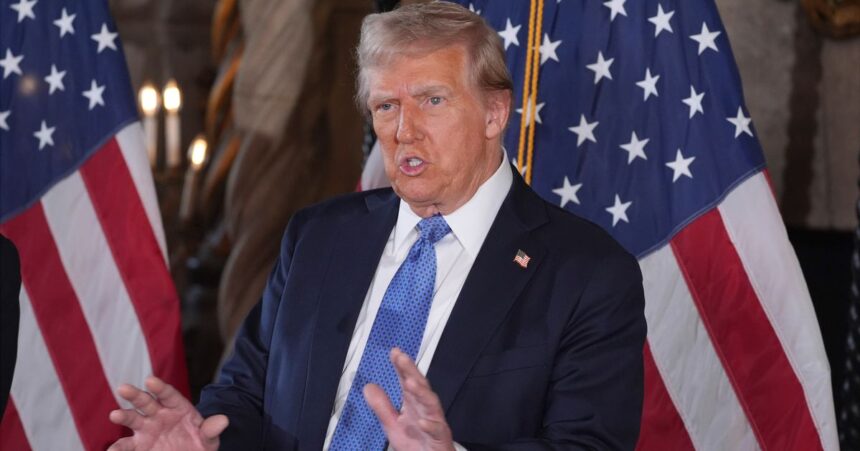The economic landscape that President-elect Donald Trump is set to inherit appears to be facing some turbulence, with critics pointing to his actions as contributing to the uncertainty. The Dow Jones stock index ended Thursday flat after a streak of 10 days of losses, and the Federal Reserve has expressed caution about further interest rate cuts due to stubbornly elevated inflation.
On Wednesday, Trump disrupted a bipartisan budget deal, raising the possibility of a government shutdown. He later promoted a new deal with Republicans that was deemed unacceptable by Democratic lawmakers and President Joe Biden. This move, coupled with a series of tariff threats, has raised concerns about the impact on prices and economic growth.
As Trump prepares for his second term, his decisions to undo agreements and create new ones in a short span of time are testing the markets’ reaction to his mix of uncertainty and dramatic actions. However, from the perspective of the Trump administration, the economy was already facing challenges due to inflation and public dissatisfaction with Biden.
Despite his victory in the election, Trump still faces skepticism from the public, with a majority holding unfavorable views of him. The economy, while showing signs of recovery, is also grappling with policy decisions such as the need to raise the debt ceiling, renew tax cuts, and address a growing budget deficit.
Federal Reserve Chair Jerome Powell has highlighted the uncertainty surrounding Trump’s policies and their potential impact on the economy. The lack of clarity on issues like tariff threats and funding for tax cuts has led to a cautious approach among policymakers.
In conclusion, Trump’s presidency begins against a backdrop of economic challenges and policy uncertainties. The path ahead is uncertain, and the markets are closely watching how his administration navigates these challenges to ensure stability and growth in the economy.







